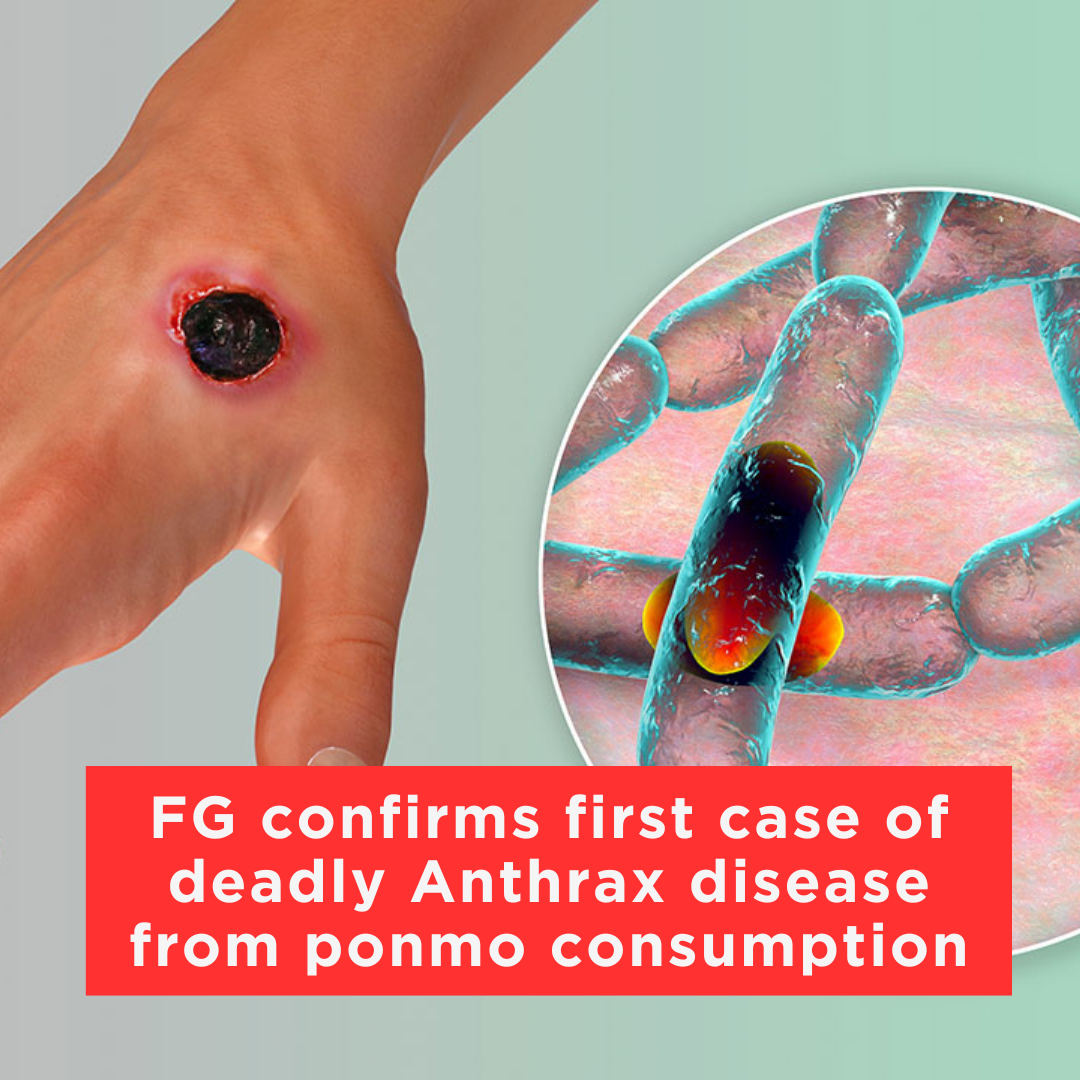Anthrax, a lethal animal disease associated with ponmo consumption, has been officially confirmed in Nigeria by the Federal Government.
On Monday, July 17, the Nigerian government officially announced the first case of anthrax in the country. The disease was discovered on a farm in Niger State. Prior to this, FG had warned the public about anthrax outbreaks in neighboring West African countries and advised against consuming ponmo (hides).
Related post: https://www.medburymedicals.com/wp-admin/post.php?post=63445&action=edit
The affected farm, located in Suleja, Niger State, had animals showing symptoms such as bleeding from their body openings (anus, nose, eyes, and ears). A rapid response team, including health professionals from federal and state authorities, visited the farm and collected samples for testing.
The National Veterinary Research Institute confirmed the diagnosis, marking the first recorded anthrax case in Nigeria in recent years. Sadly, all affected animals have died.
Anthrax primarily affects animals like cattle, sheep, and goats. However, it can also infect humans who come into direct contact with infected animals or contaminated animal products, such as meat, wool, or hides.
The Federal Ministry of Agriculture and Rural Development, in collaboration with the Niger State Government, has taken immediate measures to control and contain the outbreak. These measures include quarantining the affected farm, vaccinating in-contact animals with anthrax spore vaccines, and educating farm workers about symptoms and preventive measures.
Nationwide vaccination of cattle, sheep, and goats against anthrax will also be conducted, and surveillance in livestock farms, markets, and abattoirs will be intensified. Public awareness campaigns about anthrax will be heightened to prevent further spread of the disease.
Livestock owners are advised to remain vigilant and report any suspicious illness or deaths in their animals promptly. It is also recommended to avoid contact with sick or dead animals and their products. When purchasing animals from specific regions or countries known to be at risk, extra caution should be exercised. These regions include Nigerian states bordering Benin, Chad, and Niger, as well as Ghana and Togo via waterways.







No Comments